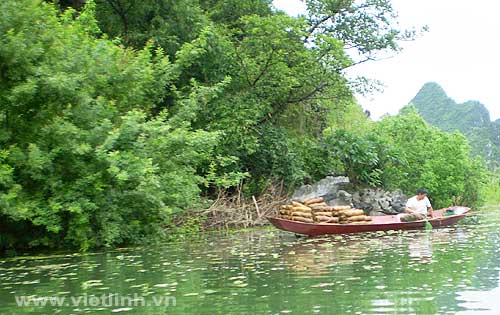Shrimp and fish are cold-blooded species (poikilotherm). Their temperature changes according to the external environment. This is different from human body temperature as we are warm-blooded, or homeothermic. Temperature especially affects respiration, food intake, assimilation of food, immune system, growth, etc.
In southern Vietnam, shrimp can be bred throughout the year while in the north, it is appropriate only with hot season. As the sun heats water surface, thermal stratification occurs: water on the top level will be lighter and harder to mix compared with water of the deeper layers. Thermal stratification can be controlled with paddle wheel or Aerator.

Black tiger prawn:
The suitable temperature for black tiger prawn, algae, and plants in the group of green algae in tropical area is about 28-30 degree Celsius. Temperature should not change abruptly as high temperature fluctuation during will discourage shrimp to eat. If the temperature is lower than 25 degree Celsius, shrimp will reduce or stop eating; it is possible that shrimp will grow slowly or stop growing.
Black tiger prawn at 28 degrees Celsius may grow slowly. At over 30 degree Celsius, it may grow faster, but are more susceptible to diseases, especially MBV disease (Monodon baculovirus).
Whiteleg shrimp:
Whiteleg shrimp is appropriate to a temperature of 23-30 degree Celsius. However, small shrimp (1 gram) grow faster in warm water (30 degree Celsius) while large shrimp (12 – 18 gram) grow at a water temperature of 27 degree Celsius. When temperature is lower than 15 degree Celsius or higher than 33 degree Celsius for 24 hours or longer, the shrimp is likely to die. Shrimp is suffocated at the temperature of 15-22 degree Celsius and 30-33 degree Celsius.
Algae:
• If the temperature is from 15 to 25 degree Celsius, algae in the group of Diatoms will grow well.
• If the temperature is from 23 to 35 degree Celsius, green algae group will grow well.
• If the temperature is higher than 35 degree Celsius, blue-green algae will grow better than other groups.
© 2014 Viet Linh